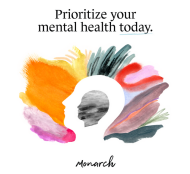Counseling Services
Kristine provides counseling services for many areas of mental health and wellness. She is also a certified EMDR therapist for trauma. Therapy sessions are available in the DeLand office or online via E-Counseling through completely private, encrypted software.
By definition, counseling is a goal-based collaborative process between a mental health professional and an individual, couple or family and involves helping people make needed changes in ways of thinking, feeling, and behaving. It is a non-judgmental process with a supportive counselor working with a client in telling his or her story, setting viable goals, and developing strategies and plans necessary to accomplish these goals.
The frequency of therapy sessions varies depending on your particular needs and desires, but we will typically meet weekly or bi-weekly for hour-long sessions. Initially, it may be difficult to predict how many sessions will be needed, so we will collaboratively discuss from session to session what the next steps are and how often therapy sessions will occur. As the client, you may request an increase or decrease to frequency or exercise the right to end treatment at any time, but I request that you communicate this desire directly to me.
The relationship between you and your therapist is important. Having the support of a professional that you can feel comfortable with and supported by is essential to your change process. There are many counseling styles and therapeutic approaches. That is why I offer a free 15-minute phone consultation in order to give you the opportunity to talk with me briefly before beginning our work together. In the very first session, we will identify your goals and begin to help you create shifts. Most people report that they start to feel better after the very first session.
Counseling
People come to counseling when their attempts to deal with their concerns are no longer effective. Counseling can be helpful areas such as:
Body image
Communication
Control Issues
Gender identity and sexual orientation (LGBTQ)
Phobias
Relationship difficulties
Relationship violence and physical abuse
Self-care
Self-esteem and Self-confidence
Sexual assault
Sleep disturbances or insomnia
Stress management
Thoughts of suicide or fixation on death
Trauma
Weight loss
And many other issues.
EMDR & Trauma
As a certified EMDR therapist, I have received specialized training in order to implement this highly effective mode of therapy. This includes extensive understanding of what trauma is, how individuals typically respond to trauma, in the moment and over time, and thus what to include and what to avoid in order to facilitate the most sensitive and effective treatment for clients.
What is EMDR therapy?
Eye Movement Desensitization and Reprocessing therapy is a psychotherapy treatment that is effective for resolving emotional difficulties caused by disturbing, difficult or frightening life experiences. When people are traumatized, their emotional resources are overwhelmed and they lose a sense of control over their lives. This can result in a number of symptoms including depression, anxiety, panic disorders, behavior problems, irritability, guilt or anger.
We typically think of trauma in terms of larger events such as accidents, abuse, death or natural disasters. But individuals can be traumatized by common childhood events such as school issues, divorce and family problems, as well.
When a painful experience happens, sometimes the memory of what occurred stays “stuck” in the mind and body. Numerous things may trigger the upsetting memory and the person may cope by avoiding everything associated with the negative experience. Exposure to the traumatic experience is what most experts agree will help a person become “unstuck.” This means the person will work to process the troubling events until they are no longer difficult to face.
What kind of issues can be treated with EMDR?
EMDR therapy helps children and adults – all ages. Therapists use EMDR with a wide range of challenges:
Anxiety, panic attacks, and phobias
Chronic Illness and medical issues
Depression and bipolar disorders
Dissociative disorders
Eating disorders
Grief and loss
Pain
Performance anxiety
Personality disorders
PTSD and other trauma and stress related issues
Relationships and marriage
Sexual assault
Sleep disturbance
Substance abuse and addiction
Violence and abuse
